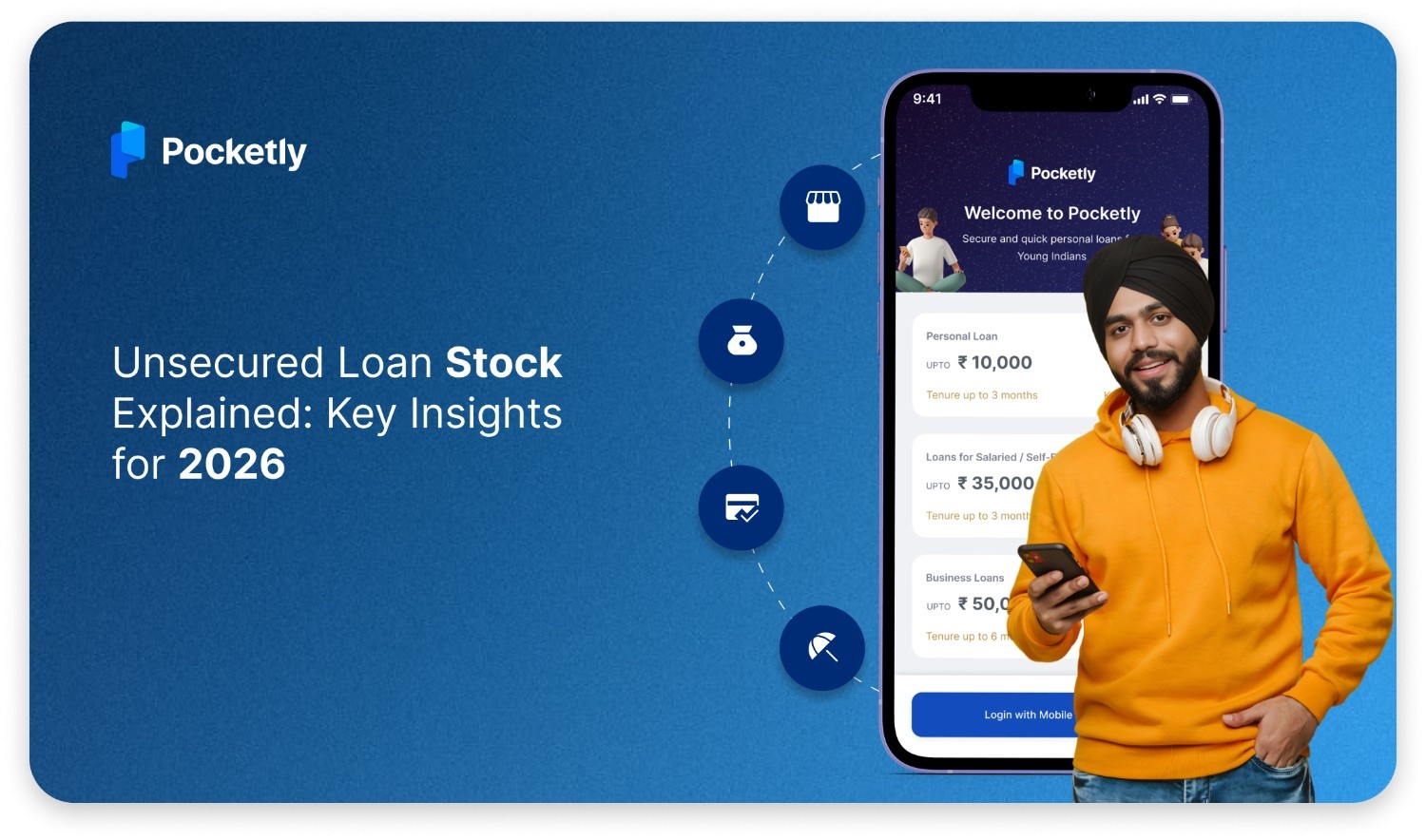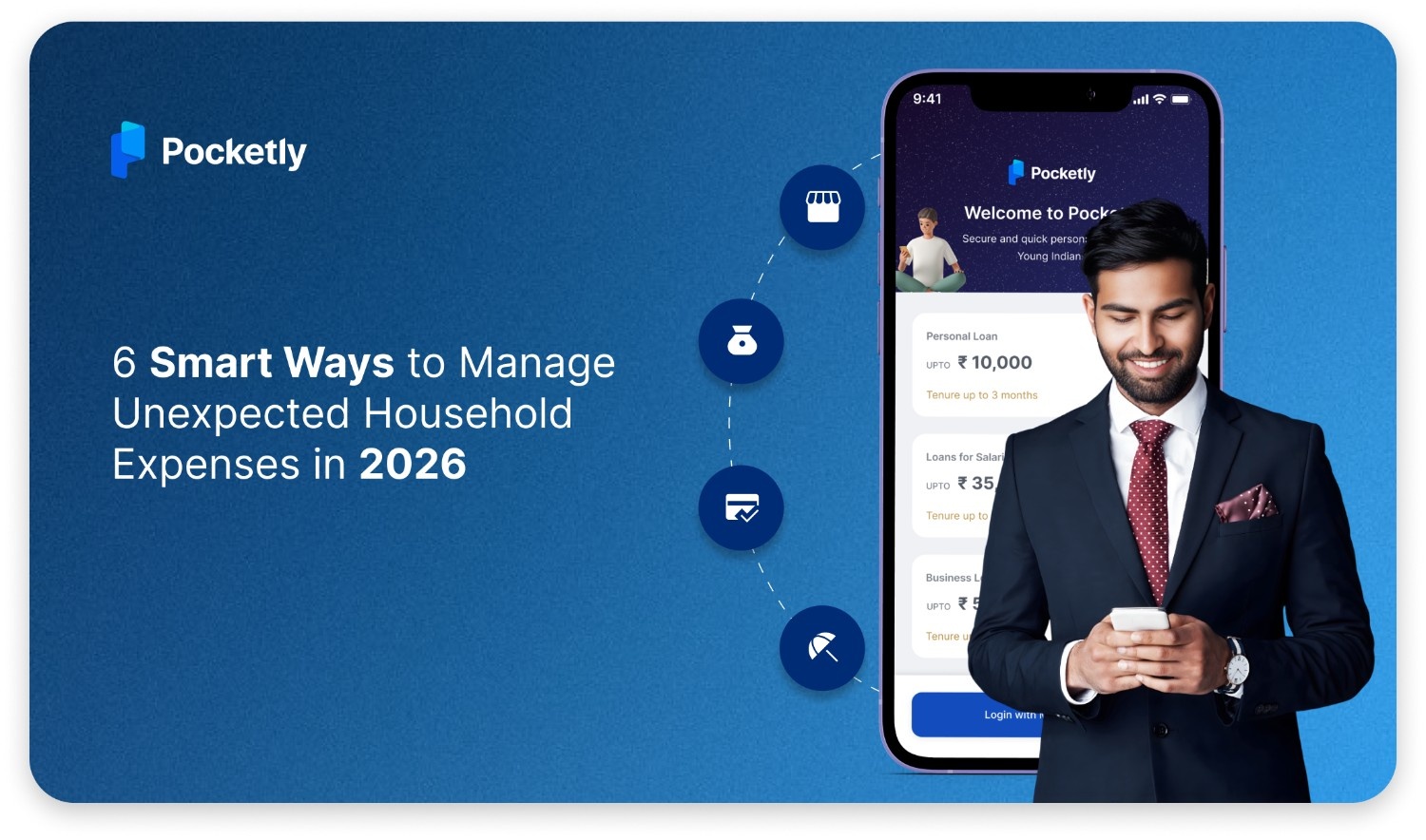Managing your money isn’t just about earning more or saving a little here and there—it’s about having a clear, actionable plan for your financial future. Whether you're dreaming of buying a house, retiring early, or simply feeling more secure in your day-to-day life, financial planning is the key to making those dreams a reality. It’s about knowing exactly where your money is going, how to grow your wealth, and how to protect your future.
But let’s face it: personal finance can feel overwhelming at times. From budgeting and investing to dealing with taxes and planning for retirement, there are so many moving parts. That’s why financial planning isn’t just something to think about once in a while—it's something you need to actively work on to ensure you're on track to meet your goals.
In this guide, we'll walk you through the core elements of financial planning, why it's crucial, and how it can empower you to take control of your finances, making sure you are prepared for life’s unexpected twists and turns. Ready to start planning for your financial future? Let’s dive in!
What Is Financial Planning?
At its core, financial planning is the utmost important process of creating a strategy to manage your finances. It involves analysing your current financial situation, setting goals, and developing a plan to achieve those goals. The primary objective is to ensure that your financial resources are effectively managed to help you meet your short-term and long-term objectives.
Why Do You Need a Financial Plan?
Having a financial plan gives you a roadmap to follow, which can help you feel more confident and in control of your finances. It helps you prioritise your needs, manage risks, and take advantage of opportunities that align with your goals.
- Security: A solid financial plan offers security by anticipating life events like job loss, health issues, or retirement.
- Goal Achievement: Financial planning ensures you can pursue life goals such as homeownership, travel, education, and even early retirement.
- Peace of Mind: Knowing that you have a plan in place gives you peace of mind, allowing you to focus on living your life without financial stress.
Core Components of Financial Planning
Financial planning is a personalised approach to managing your finances, and it's not just a one-time task—it's an ongoing process. To achieve long-term financial success, it’s important to understand and manage several key areas of your financial life.
Here’s a breakdown of the core components of financial planning that work together to give you a holistic approach to financial security:
1. Budgeting: The Foundation of Financial Health
Budgeting is where it all begins. Without a solid budget, it's easy to lose track of your income and expenses. Budgeting helps you understand where your money is going and ensures you're saving for your future rather than spending on things you don't need.
- Income Analysis: Take a good look at all the sources of your income—salary, side hustles, investments, etc. This will give you a clear picture of how much money you have to work with.
- Expense Tracking: Keep track of your monthly expenses, from groceries to utility bills. Identifying unnecessary spending is key to freeing up more cash for savings and investments.
- Cash Flow Management: Aim to have more income than expenses, creating a positive cash flow that allows you to save and invest for future goals. The goal is to manage your finances so that you're always in the black.
2. Investment Planning: Growing Your Wealth
Investment planning is essential for building long-term wealth. The right investment decisions today can yield significant returns tomorrow. Whether you prefer safer options like bonds or are willing to take on more risk with stocks, a well-balanced portfolio can help you reach your financial goals faster.
- Diversification: Spread your investments across different sectors to mitigate risks. This strategy helps protect your wealth in case one asset class underperforms.
- Risk Tolerance: Understand your own comfort level with risk. Some people are more willing to take risks for higher returns, while others prefer more stable, lower-risk investments.
- Returns: Evaluate potential returns on different investments. Make sure you understand how each option aligns with your financial goals, time horizon, and risk profile.
3. Tax Planning: Minimizing Your Tax Burden
Nobody likes paying taxes, but strategic tax planning can reduce the amount you owe and leave you with more to invest or save. By utilising available tax-saving instruments, you can keep more of your hard-earned money.
- Tax-Advantaged Investments: Consider options like the Public Provident Fund (PPF), Equity Linked Savings Schemes (ELSS), or tax-free bonds to reduce your taxable income.
- Deductions: Maximize deductions available under tax laws, such as those under Section 80C (for insurance, retirement savings, etc.) to lower your tax bill.
- Income Splitting: If applicable, consider splitting income with family members in lower tax brackets to reduce your overall tax liability.
4. Insurance Planning: Protecting What Matters
Insurance is not just a safety net—it's a critical part of ensuring that you're financially protected against the unexpected. Whether it's health emergencies, accidents, or loss of property, having the right insurance coverage can keep you from facing financial hardships in tough times.
- Life Insurance: Protect your family's financial future with life insurance. This ensures they are financially secure if anything were to happen to you.
- Health Insurance: Health insurance is essential to cover medical expenses and safeguard you against unexpected healthcare costs.
- Property Insurance: Whether it's a home, car, or other valuable assets, property insurance ensures that your possessions are protected from damage or theft.
5. Retirement Planning: Securing Your Future
No one wants to be working well into their 70s just to make ends meet. Planning for retirement is about estimating how much money you'll need to live comfortably after you stop working and ensuring that you start saving early enough to reach that goal.
- Retirement Corpus: Estimate how much you'll need to live the lifestyle you desire after retirement. Consider things like healthcare, housing, and day-to-day expenses.
- Retirement Accounts: Invest in retirement-focused accounts like the National Pension Scheme (NPS), Employee Provident Fund (EPF), or Systematic Investment Plans (SIPs) that allow you to benefit from long-term growth.
- Start Early: It's always suggested and said that the earlier you start saving, the more you can make a profit from compound growth, making it easier to be ahead of your retirement goals.
6. Estate Planning: Ensuring Your Legacy
Estate planning isn’t just for the wealthy—it’s the most important part of ensuring that your loved ones are financially protected after you're gone. A good estate plan helps you decide how your assets will be distributed and make sure that your wishes are followed.
- Wills & Trusts: Make sure you have a legal will in place that outlines how your assets should be distributed after your passing. Trusts can also help manage the transfer of your assets efficiently.
- Nominees: Appointing nominees for your insurance policies, bank accounts, and investments ensures that your loved ones will have easy access to your assets when needed.
- Tax Considerations: Take estate taxes into account when planning and understanding how your assets can be changed and distributed so that your heirs don’t face an unexpected tax burden.
By understanding on these core components, you can build a stable foundation for financial security and make suitable choices and decisions to reach your financial goals.
Key Steps in Financial Planning
Creating a successful financial plan is not a one-off task—it's an ongoing process that evolves as your circumstances and goals change. To achieve your financial goals, you’ll need to follow a structured approach, track your progress, and be willing to adjust your plan when necessary.
Here are the key steps to help you create and maintain a solid financial plan:
1. Set SMART Goals
The first step in building your financial plan is setting SMART goals. These goals are specific, measurable, attainable, relevant, and time-bound, ensuring you have a clear direction for your financial journey. It can be for saving for a down payment, or paying off debt, or it can be for building an emergency fund, setting well-defined goals is essential for staying on track.
- Specific: Keeping your desired amount helps you define what you want to achieve (e.g., “Save ₹5 lakh for a home down payment”).
- Measurable: Ensure you can track your progress (e.g., “Save ₹50,000 every month”).
- Attainable: Make sure your goal is realistic based on your income and expenses.
- Relevant: Make sure your goals are aligned with your long-term vision and priorities.
- Time-bound: It is advised to set a deadline to accomplish your goal (e.g., “Achieve this by December 2025”).
2. Develop a Budget
Once your goals are set, the next step is to develop a budget that supports these objectives. A budget helps you manage your money by clearly outlining how much you might earn, how much you might spend, and how much you might save or invest. Understanding your income and expenses, it helps you visualise the areas where you can cut back and boost savings.
- Track Income: Know exactly how much you’re earning from all sources.
- Identify Expenses: Track every expense, from fixed costs like rent to variable costs like entertainment.
- Focus on Savings: Prioritize saving and investing a portion of your income rather than spending it all.
The key to successful budgeting is consistency. Reviewing your budget monthly and adjusting as necessary will keep you aligned with your goals.
3. Create a Financial Plan
A financial plan is your roadmap for achieving your goals. It outlines where your money should go and how you’ll allocate your resources to reach those goals. Your financial plan should include:
- Savings & Investments: How much you need to save and where to invest based on your risk tolerance and goals.
- Debt Management: A plan to pay off any existing debts (credit card bills, loans, etc.) and avoid accumulating more.
- Insurance: Ensuring you’re covered against unforeseen events like accidents, illness, or loss of income.
- Retirement Planning: A strategy for building a retirement corpus through contributions to pension funds, SIPs, or other long-term savings options.
Creating a detailed financial plan helps you stay organised and focused. Keeping regular updates and rechecking your plan regularly makes sure it is aligned with your evolving goals.
4. Monitor and Adjust
Financial planning is not static. Your situation and goals may change, so it’s necessary to monitor your progress and adjust your plan as needed. Regularly checking your financial health helps you stay on track and make informed decisions. Some key things to monitor include:
- Goal Progress: Are you meeting your savings or debt reduction targets?
- Cash Flow: Are you sticking to your budget and managing your income effectively?
- Investments: Are your investments growing as expected, or do you need to adjust your strategy?
Life changes—such as a job switch, marriage, or having children—may affect your financial priorities. Be flexible and make adjustments to your financial plan as needed to stay on course.
Reasons for Financial Planning
Why is financial planning important? It’s simple: without a solid plan, it’s difficult to achieve financial security or freedom. Here are some key reasons why having a financial plan is essential:
- Direction & Focus: Financial planning gives you a clear path to follow. It provides direction and clarity on how to achieve your financial goals, it can be for getting your first home or securing a comfortable retirement.
- Emergency Preparedness: Life is unpredictable, and emergencies can happen anytime—like unexpected medical expenses, job loss, or natural disasters. Having a financial plan ensures you’re financially prepared for these unforeseen events.
- Long-Term Financial Success: Consistent, proactive planning helps you build wealth over time and avoid financial setbacks. By planning, you’ll make smarter decisions, avoid unnecessary debt, and achieve long-term financial stability.
Methods for Effective Financial Planning
Luckily, managing your finances today is easier than ever, thanks to a variety of methods available at your fingertips. Here are a few resources that can help streamline your financial planning process:
1. Debt Management Plans
If you’re managing debt, consider using debt consolidation strategies to simplify your payments and reduce interest rates. Several services allow you to consolidate multiple debts into one payment, lowering the overall cost and making it easier to manage.
- Debt Consolidation: Combine high-interest debts (e.g., credit cards, loans) into one manageable payment.
- Debt Snowball: Try to give off the smallest debts first to build momentum.
- Debt Avalanche: Focus on paying off the highest-interest debt first to save money.
2. Retirement Planners
To estimate how much you need for retirement, use online retirement calculators. These tools make a huge difference by making your desired retirement age, lifestyle, and current savings easier to project how much you should be saving annually.
- Retirement Calculators: Use these tools to estimate your retirement corpus based on your current savings and investment growth.
- EPF / NPS: Contribute to retirement schemes like the Employee Provident Fund (EPF) or the National Pension Scheme (NPS) for long-term growth.
You can also check our guide on Financial Planning Tips for Young Adults to understand finance planning in detail.
The Importance and Benefits of Financial Planning
Financial planning is a very important tool for achieving long-term security and peace of mind. It provides structure and clarity, helping you make informed decisions about your money. With a clear and subtle financial plan, you can navigate life’s uncertainties with confidence and ensure you're prepared for both the expected and the unexpected.
Here are some of the key benefits of financial planning:
- Clarity in Financial Management
- A well-thought-out financial plan helps you understand exactly where your money is going. It helps you to keep a clear picture of your income, expenses, savings, and investment allocations. With this clarity, you can avoid unnecessary spending, increase your savings, and focus on meeting your financial goals.
- Enhanced Financial Security
- Life is unpredictable, and financial planning provides the security to handle emergencies such as health issues, job loss, or unforeseen expenses. Keeping an emergency fund, insurance coverage, and a strategy for managing debt, you’ll have a financial cushion to fall back on in times of need.
- Peace of Mind
- When your finances are organised, and you know you’re prepared for both short-term needs and long-term goals, it can alleviate financial stress. With a financial plan in place, you can enjoy peace of mind knowing that you are in control of your financial future, rather than being overwhelmed by uncertainties.
- Achieving Financial Goals
- Financial planning enables you to set specific, measurable, attainable, relevant, and time-bound (SMART) goals. Whether it’s saving for a home, planning for retirement, or paying off debt, a solid plan is like your helping hand and can keep your progress updated.
- Better Debt Management
- A key part of financial planning is understanding and managing your debt. With a clear strategy, you can minimise your debt and avoid the pitfalls of high-interest loans. This can help you reduce financial strain and work towards becoming debt-free.
By recognising the importance of financial planning, you are taking a proactive approach to managing your wealth.
Getting a fast access to funds through a personal loan, digital lending platforms like Pocketly can be a lifesaver. But what makes Pocketly truly shine in a crowded market?
Let’s explore why Pocketly is the go-to option when you need cash fast and what makes it stand out from other lending platforms.
What Makes Pocketly Stand Out from the Crowd?
When it comes to digital lending, there are plenty of options, but Pocketly truly shines for a few key reasons. It’s not just another lending platform; it’s designed to make borrowing simple, fast, and stress-free. Here’s why Pocketly stands out:
- Instant Approvals: Need cash fast? Pocketly’s quick approval process ensures you get the money you need in minutes, not days.
- No Salary Slip Required: Whether you’re a student, freelancer, or someone without traditional income documentation, Pocketly makes it easy by not requiring a salary slip.
- Flexible Repayment Plans: Life can be unpredictable, so Pocketly offers repayment options that you can adjust to fit your budget and schedule—no pressure, just flexibility.
- User-Friendly Experience: Pocketly’s app is super easy to navigate, so you can apply for a loan or manage your account with just a few taps. No confusing steps or hidden hoops to jump through.
- Transparent Terms: With Pocketly, what you see is what you get. And with more benefits, such as no hidden charges.
With Pocketly, accessing a personal loan is stress-free and designed to meet your needs. Let’s walk through how to apply for a loan with Pocketly and make the process smooth and straightforward!
To learn more about applying for a personal loan, check out our guide on Instant 1000 Personal Loan Online Approval.
Conclusion
Effective financial planning is the key to building a secure and stable future. It's not just about how much you earn but how well you manage your money, set realistic goals, and stay prepared for life's uncertainties. By creating a clear budget, identifying your financial priorities, and making regular adjustments, you can take charge of your financial journey and achieve long-term success.
That said, sometimes life can surprise us with unexpected expenses. If you ever find yourself needing quick cash, whether for an urgent situation or an unforeseen emergency, platforms like Pocketly can be a real lifesaver. With its fast, easy application process, you can access funds when you need them most.
So, start planning your financial future today, and if you ever need a quick financial boost, Pocketly is here to help!
Stay on top of your finances and enjoy the peace of mind that comes with being prepared for anything with Pocketly.
FAQs
What does financial planning involve?
Financial planning involves setting clear goals, managing income, controlling expenses, and making informed decisions about investments and savings. It helps you build a roadmap for achieving financial stability and security.
How do I know if I need financial planning?
If you want to save for big goals (like buying a home or retirement), pay off debt efficiently, or just understand where your money is going, financial planning is essential. It gives you direction and ensures you’re on track to meet your financial goals.
How often should I update my financial plan?
You should review your financial plan at least once a year or whenever there’s a major change in your financial situation, such as a new job, marriage, or a significant purchase.
What are the benefits of having a financial plan?
A financial plan might help you stay ahead and focused on your goals, ensure you’re financially prepared for emergencies, and gives you the peace of mind that you’re building wealth for the future.
What is Pocketly?
Pocketly is an instant loan platform that helps you access quick cash without the hassle of long approval processes or strict credit checks. Whether you need emergency funds or want to cover unexpected expenses, Pocketly can help.
How quickly will I be able to get a loan through Pocketly?
Pocketly offers fast loan approvals with quick disbursal of funds, often within hours, depending on your application and verification details.
Do I need a high credit score to apply for a loan on Pocketly?
No, Pocketly doesn’t require a high credit score. It provides easy access to loans for individuals, even if they have limited or no credit history.
Can I use the loan from Pocketly for any purpose?
Yes, Pocketly offers flexible loan usage, so you can use the funds for various purposes like medical emergencies, travel, bills, or any urgent financial need.








